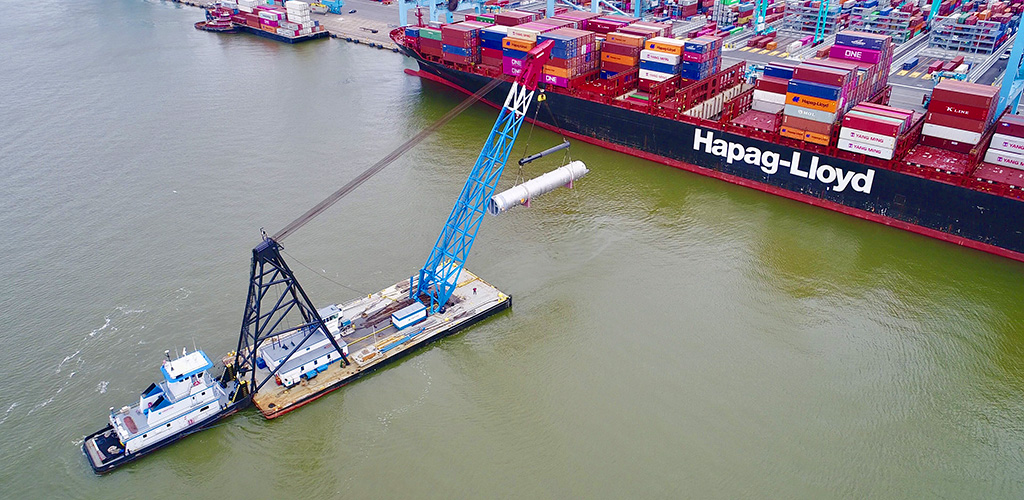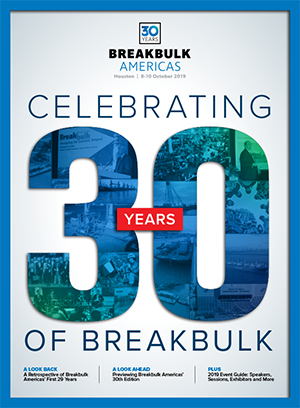Sep 07 | 2019
Incoterms 2020 rules will come into force on Jan. 1, 2020. A common perception across the industry is that the update may include more changes for containerized operations rather than the multi-purpose vessel operations of breakbulk in project cargo, but the issue is not that clear cut.

Incoterms have been around since 1936. Up until that time, nations operated under their own rules about how business was conducted. To overcome those vagaries of different rules for different locations, industry came together through the International Chamber of Commerce (ICC) to develop common terms for use in sales contracts or purchase orders. The trade terms help all parties involved in a shipment avoid costly misunderstandings by clarifying the tasks, costs and risks involved in the delivery of goods from sellers to buyers.
The revisions come along about every 10 years, but rather than them being set on a particular calendar date, they are determined based on changes in the transport sector. For instance, the first major revision came after World War II when rail transportation was on the rise. Twenty-three years later, air freight got a specialized term to reflect its ascent in the world of transport. In the last update, modifications were made so that buyer and seller were obliged to cooperate in the exchange of information as a security measure. What’s next?
"None of us will know until mid-September when these rules are officially available and when the ICC starts to release their training sessions,”
Dennis Mottola, Global Logistics Consultant, who has spent the last 21 years as head of global logistics for Bechtel corporation said. “The speculation is that the changes that have been made are more applicable to container or cargo than they are to breakbulk.”
But that doesn’t mean those involved with project cargo can afford to ignore the update. “Typically, the changes in the past have not been geared to specifically addressing just one or the other: just container trade or just breakbulk project cargo trade,” he said. “Further, in most cases, companies that are involved in moving breakbulk and project cargo are also involved in moving container cargoes.”
From Mottola’s perspective—and few would argue—the big breakbulk/project cargo trade is more complex than container transportation, which means there is a greater need for the clarity a robust set of Incoterms brings to contracts.
Once the update is released, buyers and sellers alike should ask themselves how it applies to their business whether cargo moves by breakbulk or by container. According to Mottola, most shippers are probably going to need to understand how the 2020 changes apply in either situation.
It’s no coincidence that the Incoterms 2020 will be discussed at Breakbulk Americas, just two or three weeks after the update is released. Mottola will be joined by Frank Reynolds, the U.S. representative to the International Chamber of Commerce. The pair will talk through the update and its likely impact on all parties in the supply chain.
NEED TO DIG DEEPER?
On Friday, Oct. 11, Frank Reynolds will conduct a full day seminar at the Houston West Chamber of Commerce from 8:00 am – 4:00 pm.
This full-day seminar provides the information you need to use these improved Incoterms rules to your advantage. Both the newly revised Incoterms Rules for Americans and the official ICC Incoterms 2020 books are included – a retail value of over $150. For more information, visit incoterms-for-americans.com/rules-information.

RELATED SESSION AT BREAKBULK AMERICAS
Fireside Chat: Incoterms Rules and the 2020 Revisions
Thursday, October 10
10:15 - 10:45
Breakbulk Main Stage
Panelists:
Dennis Mottola, Global Logistics Consultant
Frank Reynolds, President, International Projects, Inc.



